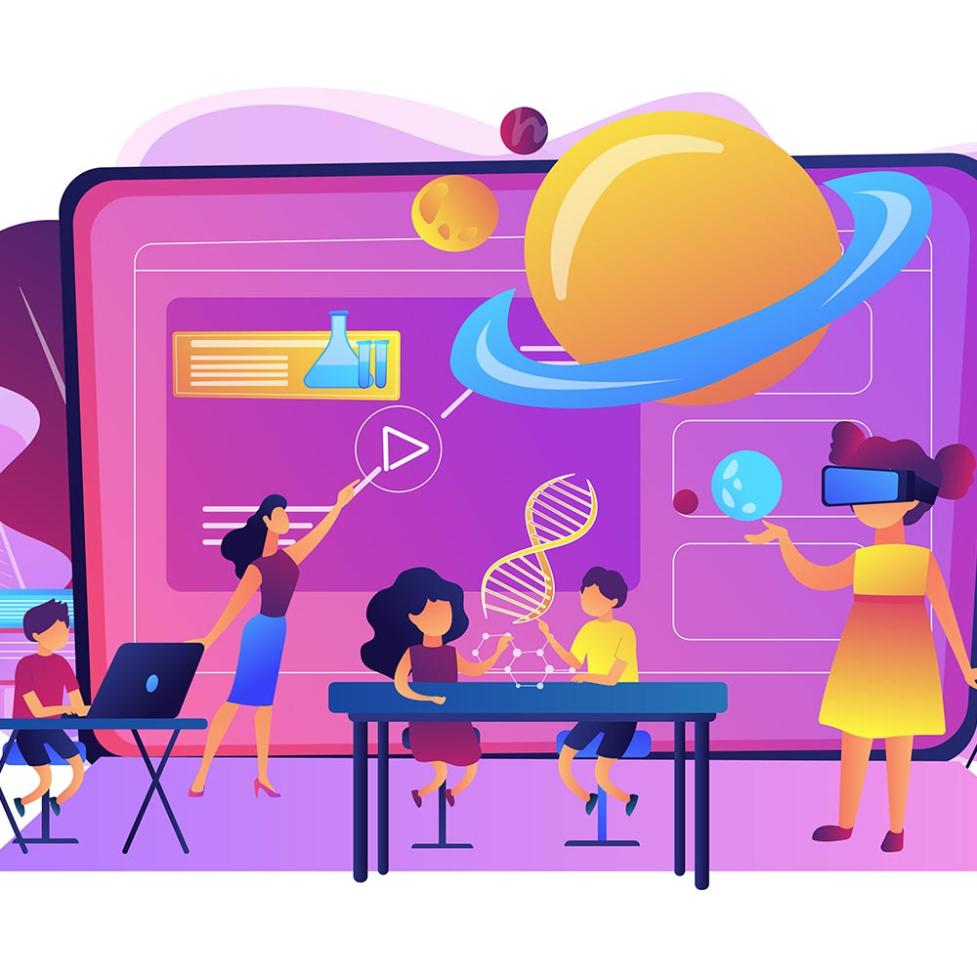How is AI Edtech Revolutionizing Education in the United Arab Emirates?
The United Arab Emirates (UAE) has emerged as a frontrunner in adopting artificial intelligence (AI) in education, transforming the learning landscape and empowering students with personalized, engaging, and accessible educational experiences. This article delves into the significance of AI Edtech in the UAE, exploring its benefits, challenges, successful initiatives, and future prospects.

I. Benefits Of AI Edtech In The UAE:
A. Personalized Learning:
- AI-powered adaptive learning platforms analyze individual student needs, tailoring content, pace, and difficulty levels to optimize learning outcomes.
- Real-time feedback and progress tracking enhance learning efficiency, enabling students to identify areas for improvement and celebrate achievements.
B. Improved Student Engagement:
- Interactive and gamified learning experiences capture student attention, making learning more enjoyable and motivating.
- AI-driven simulations and virtual reality (VR) environments enhance engagement and understanding, creating immersive learning experiences.
C. Enhanced Accessibility:
- AI-enabled online learning platforms provide equal access to education for all students, regardless of location or circumstances.
- Remote learning options cater to students in remote areas or with special needs, ensuring inclusivity and equitable access to quality education.
D. Teacher Empowerment:
- AI assists teachers in identifying student strengths and weaknesses, enabling targeted interventions and support.
- AI-powered tools automate administrative tasks, freeing up teachers' time for teaching, lesson planning, and providing personalized attention to students.
II. Challenges Of AI Edtech Implementation:
A. Data Privacy And Security:
- Ensuring the privacy and security of student data in AI-powered platforms is paramount, requiring robust data protection measures and adherence to ethical guidelines.
- Establishing clear guidelines for data collection, usage, and storage is essential to maintain trust and confidence in AI Edtech systems.
B. Teacher Training And Readiness:
- Providing teachers with adequate training and support is crucial to ensure effective use of AI Edtech tools and foster a culture of innovation in the classroom.
- Addressing resistance to change and promoting a growth mindset among teachers is essential for successful AI Edtech implementation.
C. Infrastructure And Connectivity:
- Ensuring reliable internet connectivity is vital for seamless access to AI Edtech applications, particularly in remote or underserved areas.
- Upgrading educational infrastructure to accommodate AI-driven learning environments, such as VR and AR labs, is necessary to fully harness the potential of AI Edtech.
III. Case Studies Of Successful AI Edtech Initiatives In The UAE:
A. Mohammed Bin Rashid Smart Learning Program:
- The Mohammed Bin Rashid Smart Learning Program is a comprehensive initiative aimed at transforming education in the UAE through AI and technology.
- Key features include personalized learning plans, interactive digital content, and AI-powered analytics to monitor student progress and provide targeted support.
B. AI-Powered Language Learning Platforms:
- AI-driven language learning platforms, such as Duolingo and Babbel, are gaining popularity in the UAE, offering personalized language lessons and adaptive content.
- Success stories of students improving their language skills through AI-based learning demonstrate the effectiveness of these platforms.
C. Virtual Reality And Augmented Reality In Education:
- Innovative uses of VR and AR in UAE classrooms are transforming learning experiences, making them more interactive and engaging.
- Case studies of schools integrating VR and AR to enhance student learning in subjects like science, history, and geography showcase the potential of these technologies.
IV. Future Of AI Edtech In The UAE:
A. Emerging Trends And Innovations:
- AI-powered chatbots are emerging as personalized learning assistants, providing real-time support and guidance to students.
- AI-driven predictive analytics can identify at-risk students early on, enabling timely interventions and support to prevent academic struggles.
B. Policy And Regulatory Framework:
- The government plays a crucial role in promoting and regulating AI Edtech, ensuring responsible and ethical implementation.
- Establishing standards and guidelines for AI Edtech implementation is essential to maintain quality and protect student data.
V. Conclusion:
AI Edtech is revolutionizing education in the United Arab Emirates, offering personalized, engaging, and accessible learning experiences that empower students to thrive in the 21st century. By addressing challenges, promoting innovation, and fostering collaboration, the UAE is poised to become a global leader in AI-driven education, transforming the lives of learners and shaping the future of education.
YesNo

Leave a Reply